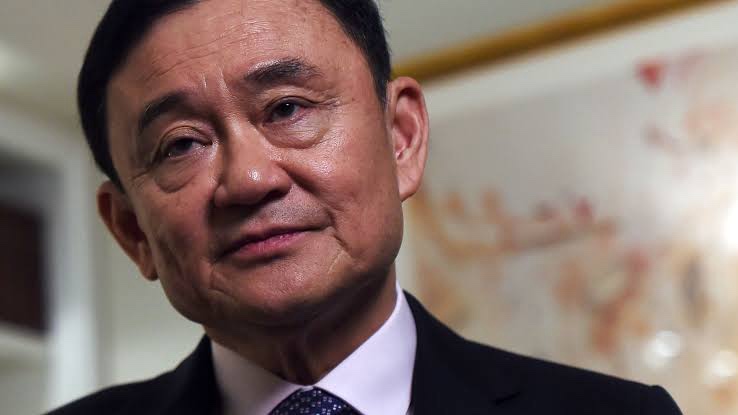Thailand indicts former leader Thaksin Shinawatra on royal insult charges

Thailand’s former Prime Minister Thaksin Shinawatra has been indicted on lese majeste charges, authorities said Wednesday, in the latest twist in a decades-long political saga in the Southeast Asian kingdom.
The case, filed by police, alleged Thaksin violated Thailand’s notoriously harsh royal insult law during an interview he gave in 2015 to the South Korean newspaper Chosun Ilbo.
“The attorney general has decided to indict Thaksin on all charges,” spokesperson Prayuth Bejraguna, told reporters Wednesday. Thaksin will need to appear before the Office of the Attorney General on June 18, after which he will be taken to court. He could not appear at Wednesday’s hearing due to a Covid-19 infection, the spokesperson said.
Thaksin has denied the charges, according to the spokesperson, and has repeatedly pledged loyalty to the monarchy.
Thaksin, who served as prime minister from 2001 until he was ousted in a military coup in 2006, made a dramatic return to Thailand last August after 15 years in self-imposed exile and was taken into custody.
Some experts believe Thaksin may have struck a deal with the country’s powerful conservative and royalist establishment for his return – given his court convictions and the charges against him. Thaksin has denied the claim.
He was sentenced to eight years in prison for conflict of interest, abuse of power and corruption during his time in power, though his sentence was later reduced to one year. In February, the 74-year-old was released from detention after being granted parole, having served just six months in a police hospital.
Thailand has some of the world’s strictest royal defamation laws, and criticizing the king, queen, or heir apparent can lead to a maximum 15-year prison sentence for each offense.
Sentences for those convicted under Section 112 of Thailand’s Criminal Code, or lese majeste law, can be decades long, and hundreds of people have been prosecuted in recent years.
Earlier this month, the death of a young Thai activist in pre-trial detention for lese majeste charges shocked many in the country and sparked renewed calls for justice reform.
Thaksin, a former owner Manchester City Football Club, is the head of a famed political dynasty that has dominated Thai politics for the past two decades, boasting two former prime ministers.
Even today, Pheu Thai — the latest party of the powerful Shinawatra clan — is in government after entering into a ruling coalition with its former military rivals following the May 2023 election. Thaksin’s daughter Paetongtarn is leader of the party.
Thaksin’s return to Thailand reintroduced a towering and divisive figure to Thailand at a tense political time.
Since his release from detention, Thaksin has traveled the country making a series of public appearances, including to his hometown of Chiang Mai where his support base is concentrated.
Throughout his time in power, Thaksin was hugely popular with Thailand’s rural and working class but his policies were loathed by rich elites and conservatives who accused him of being a dangerous and corrupt populist.
During his physical absence from the country, he retained an outsized influence on Thai politics and has remained at the center of the country’s tumultuous and often violent political landscape.
Thaksin has denied that he remains behind the scenes pulling the strings and insisted he returned to Thailand because he wants to enjoy his retirement and spend time with his family.
For years, human rights organizations and free speech campaigners have said lese majeste has been used as a political tool to silence critics of the Thai government.
And rights groups say the right to freedom of expression in Thailand has come under increased attack since nationwide 2020 youth-led protests that saw millions of young people take to the streets calling for constitutional and democratic reforms – for the first time, openly criticizing the monarchy and publicly questioning its power and wealth.
Those protests came four years after King Maha Vajiralongkorn succeeded his father King Bhumibol Adulyadej who had reigned for seven decades.
Despite the change from a military-backed government to civilian leadership last year, surveillance and intimidation against activists and students continues, according to Thai Lawyers for Human Rights.
The legal advocacy group said that since the start of those protests in July 2020 and up until March 2024, at least 1,954 people have been prosecuted or charged for their participation in political assemblies and for speaking out, with 286 of those cases involving children.
A push to reform the lese majeste laws gained significant traction ahead of the 2023 general election, which saw the progressive Move Forward Party win the most votes.
The party was ultimately blocked from forming a government over its reform agenda, and later the Constitutional Court ruled Move Forward violated the constitution through its campaign to amend the lese majeste law and ordered it to stop all related activities.















